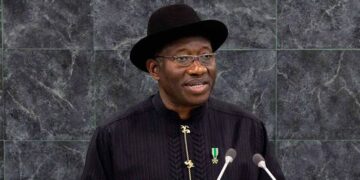Benin City, Nigeria — October 2025 Markets across Benin City erupted in jubilation this week as His Royal Majesty, Oba Ewuare II, reaffirmed the Iyeki as the only legitimate and culturally recognised market leadership structure in the ancient Benin Kingdom. The monarch’s declaration effectively rejected the introduction of the Iyaloja-General title — a system widely used in parts of Nigeria but described by the Oba as “alien” to Benin tradition.
The decision follows weeks of public debate and tension sparked by the visit of Mrs Folashade Tinubu-Ojo, the Iyaloja-General of Nigeria and daughter of President Bola Ahmed Tinubu, who was expected to inaugurate Pastor Josephine Ivbazebule as the new Iyaloja-General for Edo State. The development was met with unease from the palace and segments of the local market community.
The Heart of the Controversy
The term Iyaloja — meaning “Mother of the Market” — is deeply embedded in Yoruba commerce and has spread to other parts of Nigeria, including Lagos, Ogun, and Oyo States. However, in Benin, the centuries-old Iyeki structure has always served as the spiritual and administrative authority in markets.
In his palace address, Oba Ewuare II clarified that the Iyeki institution predates colonial influence and carries not only administrative but also spiritual significance.
“The idea of an Iyaloja-General is foreign to Benin culture,” the Oba declared.
“Our markets have always been guided by the Iyeki system, which is rooted in our traditions and rituals. This is not something to be replaced or overridden.”
Unlike the Iyaloja-General, who typically oversees multiple markets in a centralised fashion, each Benin market has its own Iyeki, chosen by traders but confirmed by the Oba’s palace. This ensures that market governance aligns with the kingdom’s cultural and spiritual frameworks.
Market Jubilation and Grassroots Support.
Scenes from markets such as Oba Market, Uselu Market, and New Benin Market showed traders singing, drumming, and dancing in celebration after the Oba’s pronouncement. Market women expressed relief that their long-standing system was upheld.
“We have always known the Iyeki as our leader,” said Mrs Edehi Okunbor, a fabric trader at Oba Market.
“She is chosen by us, but she serves under the Oba and protects our traditions. We were worried outsiders would bring confusion.”
Another trader, Osamwonyi Uyi, described the move as a “victory for culture”:
“This is not about rejecting progress; it’s about preserving who we are. The Iyeki understands our ways and answers to the palace.”
Cultural and Political Implications
This standoff goes beyond market administration — it highlights the delicate balance between tradition and modern governance in Nigeria:
-
Cultural Sovereignty: Benin prides itself on a powerful monarchy that predates Nigeria’s colonial history. The Oba’s move reinforces the kingdom’s autonomy in artistic matters.
-
Women in Leadership: The Iyaloja institution has historically empowered women in commerce. Some critics argue that rejecting it could limit links between Benin’s markets and national women’s trade networks. Supporters, however, say the Iyeki role already fulfils similar functions while remaining authentic.
-
Political Symbolism: Mrs Tinubu-Ojo’s visit carried political undertones due to her influence and connections to the presidency. Analysts suggest the Oba’s strong response signals his intention to keep market affairs free from external political control.
-
Economic Organisation: Market leadership affects dues collection, dispute resolution, and how traders interact with local authorities. By keeping the Iyeki system, Benin maintains decentralised, culturally embedded governance.
-
Tradition Meets Modernity — A Continuing Conversation
Observers believe this development is part of a broader national debate about identity and modernisation. As Nigeria urbanises and commercial networks become more interconnected, local kingdoms are increasingly defending their heritage against perceived external influence.
Dr Eseosa Igbinovia, a historian at the University of Benin, notes:
“This is not an anti-modernity move. It’s a reminder that Nigeria is not one culture. For markets, which are deeply social spaces, leadership must fit local history and spiritual systems.”
The Oba’s decision could inspire other traditional states to re-examine leadership structures imported from outside their cultural spheres.
Looking Ahead.
While the Oba’s ruling has temporarily cooled tensions in Benin markets, it remains unclear how national market associations will respond. Will the Iyaloja-General office respect the Oba’s stance, or could further negotiations occur to harmonise the two systems?
For now, the Oba’s firm defence of Iyeki authority has strengthened local identity and brought relief to traders. In the bustling markets of Benin City, tradition has prevailed — at least for now.









